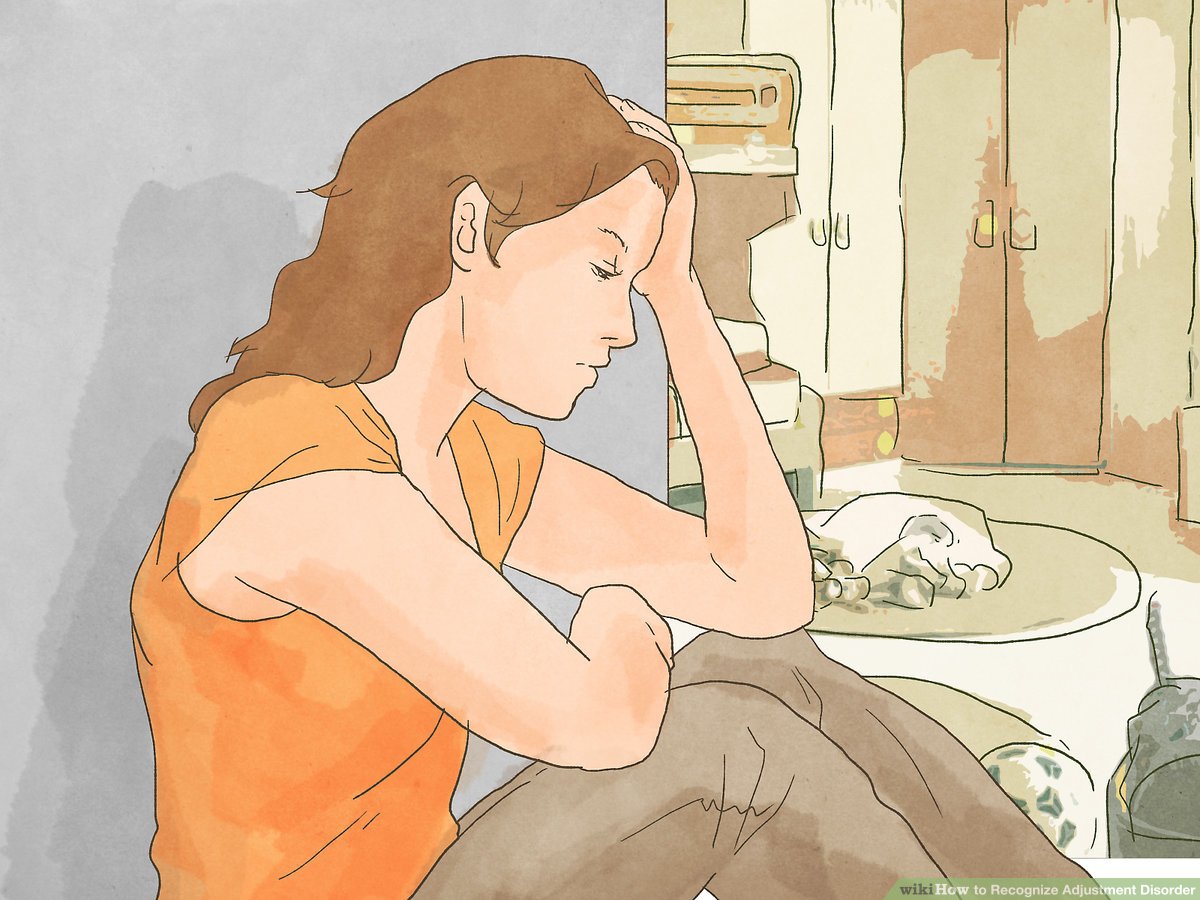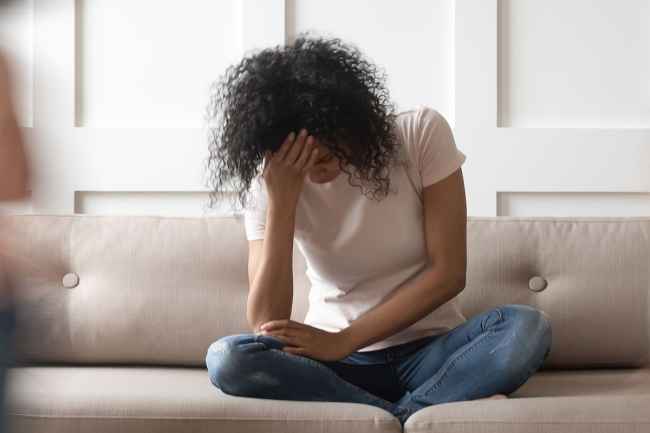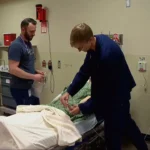Life brings changes. Some changes are hard. Big events can happen. These events can be stressful. Sometimes, reacting to stress is very difficult. It can feel overwhelming. It can affect how you feel. It can affect how you act. This can lead to a specific mental health condition. It is called adjustment disorder. One type is adjustment disorder with depressed mood. This means you feel very sad after a stressful event. Understanding this condition is important. Knowing what adjustment disorder with depressed mood is helps you recognize it. Learning about its symptoms and treatment can help you or someone you know.

What is Adjustment Disorder? Understanding the Basics
Adjustment disorder is a type of stress-related condition. It happens when a person has trouble coping. They have trouble coping with a specific stressor. A stressor is a stressful event or change in life. This event causes a strong emotional or behavioral reaction. The reaction is stronger than what is normally expected. It causes significant distress. It also causes problems in important areas of life. These areas include work, school, or social activities.
This condition is listed in the main book for mental health diagnoses. This book is called the DSM-5. So, adjustment disorder is a real, diagnosable condition. It is not just “overreacting.” It is a recognized mental health issue. It shows that a person’s coping skills are stretched thin by the stressor.
There are different types of adjustment disorder. These types depend on the main symptoms. Some types involve anxiety. Some involve problems with behavior. Our focus here is on one specific type. It is called adjustment disorder with depressed mood.
Focusing on Depressed Mood
This specific type is named after its main symptom. The main symptom is a depressed mood. People with adjustment disorder with depressed mood feel a deep sadness. They feel very down. They might cry more often than usual. They might feel a sense of hopelessness. This feeling is directly linked to the stressful event. It started after the stressor happened.
This is the key difference from other types of adjustment disorder. Other types might show mostly worry. Or they might show defiance or acting out. But in this type, the main feeling is sadness. It is like a wave of sadness. This sadness washes over the person after the difficult event. It affects their daily life. It makes coping harder.
Common Stressors Leading to This Disorder
Many different life events can cause adjustment disorder. The event does not have to be huge. What is stressful for one person might not be for another. It depends on the person. It depends on their life. It depends on their support system.

Examples of common stressors include:
- Losing a job: This is a big change. It affects money. It affects routine.
- A relationship breakup or divorce: Ending a relationship is very painful.
- Moving to a new city or home: This involves leaving familiar places and people.
- The death of a loved one: Grief is normal. But sometimes the reaction is more severe or prolonged than usual.
- Serious illness in yourself or a family member: Dealing with health problems is very stressful.
- Financial difficulties: Money problems cause a lot of worry.
- Problems at school or work: Conflicts or failures can be hard to handle.
- Natural disasters: Events like floods or fires cause immense stress.
- Starting a new school or job: Even positive changes can be stressful.
These stressors can be single events. They happen once. Or they can be ongoing problems. An ongoing stressor could be caring for someone with a chronic illness. Or it could be living in a difficult neighborhood. Adjustment disorder with depressed mood happens because the person is struggling to adjust to this specific stressor. Their usual ways of coping are not enough right now.
Symptoms of Adjustment Disorder with Depressed Mood
The symptoms must appear within 3 months of the stressful event. They cause clear distress. They make it hard to function well. The main symptoms are about sadness and hopelessness.
Key symptoms include:
- Feeling sad most of the time. This feeling is stronger than just normal sadness.
- Crying spells. You might cry easily or often.
- Feeling downhearted or discouraged. Life might feel bleak.
- A sense of hopelessness. It might feel like things will not get better.
- Losing interest in things you used to enjoy. Hobbies might not feel fun anymore. Social activities might seem too hard.
- Trouble concentrating. It might be hard to focus at work or school. Stress takes up mental space.
- Changes in sleep. Some people sleep much more. Some people sleep much less. Trouble falling or staying asleep is common.
- Feeling overwhelmed. It might feel like you cannot handle things. Daily tasks feel too big.
- Withdrawing from others. You might want to be alone. You might avoid friends or family.
- Low energy. You might feel tired a lot. Even small tasks feel draining.
These symptoms are different from feeling sad for a day or two. They last longer. They are tied to the stressor. They make daily life much harder.
How Does it Differ from Major Depression?
It is very important to understand this difference. Adjustment disorder with depressed mood and Major Depressive Disorder (MDD) both involve sadness. But they are not the same.
- Trigger: Adjustment disorder always has a clear stressor. Symptoms start after this event. MDD can happen without any obvious trigger.
- Duration: Adjustment disorder usually gets better. Symptoms should resolve within 6 months after the stressor ends. Or they should end after you cope with the stressor well. If the stressor is ongoing, the disorder might last longer. But MDD can last for many months or years. It does not depend on a specific recent event.
- Severity: Symptoms of adjustment disorder cause distress. They cause problems. But they are typically less severe than in MDD. MDD symptoms are often more intense. They include more severe loss of interest. They might include thoughts of death or suicide (these can happen in adjustment disorder too, but are a sign to seek immediate help).
Understanding this difference helps doctors make the right diagnosis. The right diagnosis leads to the right treatment.
Diagnosing Adjustment Disorder with Depressed Mood
Only a qualified mental health professional can diagnose adjustment disorder with depressed mood. This person might be a psychiatrist. They might be a psychologist. They might be a licensed therapist.

The process involves talking. The professional will ask about your symptoms. They will ask about recent life events. They look for a clear stressor. Symptoms must have started within 3 months of this stressor. The symptoms must cause significant distress. This means they bother you a lot. Or they make it hard to function. This means you struggle at work, school, or socially.
The professional will also make sure symptoms are not due to something else. They check that it is not:
- Another mental health disorder: Like Major Depressive Disorder or Post-Traumatic Stress Disorder (PTSD). PTSD is also stress-related, but for very severe trauma.
- A normal reaction: They make sure it is not typical grief after a death. Grief is a normal process.
- Another medical condition: Some medical issues can cause mood changes.
The diagnosis helps validate your feelings. It shows that your reaction is significant. It is a sign that you need support to cope with the stressor.
Who Might Be at Higher Risk?
Anyone can develop an adjustment disorder after stress. But some factors might make it more likely.
- Past experiences: If you have had past trauma or stress, current stress might be harder to handle.
- Coping skills: If you lack strong coping skills, adjusting can be tougher.
- Support system: Not having strong support from family or friends can make a difference.
- Other health issues: Having other physical or mental health conditions might increase vulnerability.
These factors do not mean you will get the disorder. But they can play a role.
Treatment for Adjustment Disorder with Depressed Mood
The good news is that adjustment disorder with depressed mood is treatable. The goal of treatment is to help you feel better. It aims to improve your coping skills. It helps you adjust to the stressor.
The main treatment is therapy. This is also called psychotherapy. Talking with a therapist is very helpful. Different types of therapy can be used:
- Cognitive Behavioral Therapy (CBT): This helps you look at your thoughts. It helps you change negative thinking patterns. It helps you develop better ways to react to stress.
- Interpersonal Therapy (IPT): This focuses on your relationships. It looks at how stress affects your relationships. It looks at how relationships affect your mood. It helps you improve social support.
- Supportive Therapy: This offers a safe space. The therapist provides empathy. They listen. They help you explore your feelings. They help you find ways to cope.
Therapy helps you process the stressor. It helps you build new skills. It helps you regain your ability to cope. Finding a therapist you trust is very important.
Medication is usually not the main treatment for adjustment disorder. Doctors might use medication short-term. This might be for specific symptoms. For example, they might give medicine for severe sleep problems. Or for very strong anxiety that comes with the depressed mood. But medication does not fix the underlying adjustment issue itself. Therapy is key for that.
Support groups can also help. Connecting with others facing similar life stresses can provide comfort and understanding. You feel less alone.
Coping Strategies and Self-Help
While professional help is important, there are also things you can do. Developing healthy coping strategies is vital.
- Practice relaxation: Try deep breathing exercises. Try meditation. Try yoga. These can help calm your mind and body.
- Stay healthy: Focus on getting enough sleep. Eat nutritious foods. Get regular physical activity. Taking care of your body supports your mind.
- Seek support: Talk to trusted friends or family members. Share how you feel. Do not isolate yourself.
- Do things you enjoy: Even if it is hard, try to do activities that used to bring you pleasure. Start small.
- Break down problems: If the stressor feels too big, break it into smaller, manageable parts. Tackle one step at a time.
- Be patient: Healing takes time. Adjusting to big changes takes time. Be kind to yourself. Do not expect to feel better immediately.
These strategies can support your recovery. They help build your resilience.
When Should You Seek Professional Help?
It is important to know when to get help. If your symptoms are very strong, seek help. If you feel overwhelmed, seek help. If it is hard to function in your daily life (work, school, social), get help. If your symptoms are not getting better over time, reach out to a professional.
Most importantly, if you have thoughts of harming yourself, seek help immediately. Call a crisis hotline. Go to an emergency room. Tell someone you trust right away. You are not alone. Help is available.
Prognosis and Recovery
The outlook for adjustment disorder with depressed mood is generally good. Most people recover well. Symptoms often lessen and go away within 6 months. This happens especially after the stressor is removed. Or after you have learned to cope with it better.
Treatment, like therapy, can speed up recovery. It helps you develop stronger coping skills. These skills will help you in the future too. They prepare you for facing new stressors in life. Recovery means feeling like yourself again. It means being able to handle daily life effectively.
In summary, adjustment disorder with depressed mood is a real mental health condition. It is a strong reaction to a specific stressful life event. It involves feelings of sadness, tearfulness, and hopelessness. These feelings cause significant distress and make functioning difficult. This condition is diagnosed by a mental health professional. It is different from Major Depressive Disorder because it is tied to a stressor and typically resolves.
The good news is that adjustment disorder with depressed mood is treatable. Therapy is the main way to get better. It helps you process the stressor and build coping skills. Sometimes, medication is used for specific symptoms. Self-help strategies and social support are also very helpful.
If you are struggling after a stressful event, and you feel persistent sadness or hopelessness, please know you are not alone. Your feelings are valid. Seeking professional help is a sign of strength. It is the best way to get support. It helps you learn how to adjust and move forward. With the right help and coping strategies, you can recover and regain your well-being. Don’t hesitate to reach out for support when life’s adjustments feel overwhelming.







